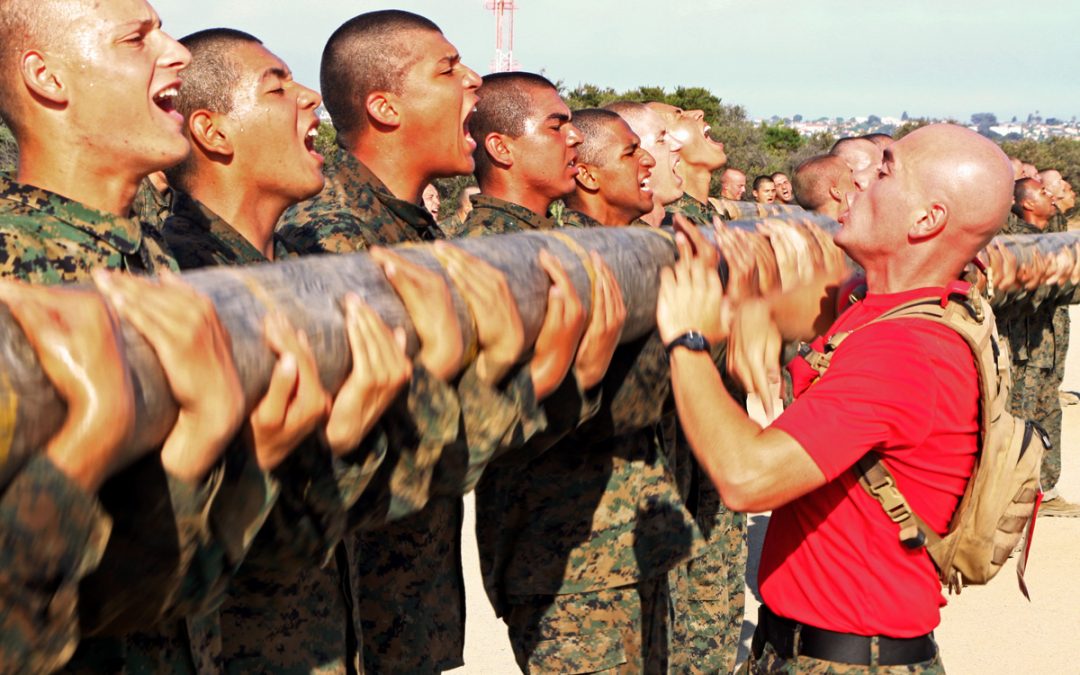The military is tougher than college statement depends on the individual, as a life of service may prove to be extremely difficult for some and an ideal fit for others. Just as college life maybe academically stressful and challenging to some and easy to others. However, this title statement can obviously be debated many different ways, but this opinion piece can be objectively justified with the following statistics:
Entry Standards to College or the Military (Enlisted and Officer Programs)
- Nearly 70% of high school graduates entered college last year.
- Roughly 75% of young men and women of the ages of 1724 would not be eligible for military service for the following reasons:
- 31 percent are too overweight to qualify for military service.
- 32 percent of all young people have health problems – other than their weight – that will keep them from serving (ADHD, Prescribed meds, big list of medical reasons).
- Failing Physical Fitness Standards due to overweight or physical strength and endurance is roughly 15,000 each year.
- 10% have a criminal record that disqualifies them from service.
- 30% have a history of drug use that would disqualify them.
- 25% lack a high school diploma.
- 23% do not score highly enough on the ASVAB Test.
- Note – obviously there are some colleges who have a less than 5-10% acceptance rate and being fit with poor grades would make many disqualified for college as well. Also, the Military Academy (West Point), Naval Academy, and Air Force Academy all have an acceptance rate of 812%. Roughly less than 30% annually get accepted into ROTC programs. So, military college is also tougher to get into that civilian college overall.
Stress in the Military and College
Stress is stress and perception is reality. Hormonally speaking, it does not matter if you have to pull an all-nighter to finish a term paper or stand guard duty over-night protecting your FOB (Forward Operating Base), the hormonal effects of stress affect you equally. However, the stakes are greatly different. You pass or fail a term paper. In those terms, in the military passing and failing means living or dying or injury. When put into context, the potential consequences of military stressors far outweigh those of a college student.
There are also subjective grading criteria that state military life is harder than college, however, there are many ways that college life can be just as difficult and stressful (or more so) to the young American student.
- Paying for college is highly stressful to any student not on scholarship. Working a part time job, taking loans, add very much to the stress of living from semester to semester as a college student. Any educational training in the military is paid for while receiving a salary, while earning money for college in your future with the GI Bill.
- Leaving home for the first time. Regardless of where you go, leaving home for the first time is stressful to both the military recruit at boot camp as well as the young college kid living in a different state in a dorm. Though the constant negative feedback for the military recruit is high, many young people fail with this new stressor of leaving home in advanced military selections as well as college.
- Obviously, the chances of posttraumatic stress and work stress is greater within the military, however graduating college is immensely stress relieving to the young graduate. Now the new stress of finding a job begins. Depending upon the difficulty of the major and how hard the student worked in college the job hunt stress may be less than average. But earning that level of a degree required tremendous effort, persistence, and never quit attitude similar to many military training programs.
Skills, Discipline, and Experience in the Military and College
- Responsibilities. In the military, young men and women are given great responsibilities that often have failure consequences that include injury or death, loss of millions of dollars of property and equipment, or mission failure. Nothing in college compares to that level of responsibility.
- Discipline. To be a new college student requires discipline IF you want to stay a college student. Finding time to study, complete assignments, and perform at a high standard as a student while the temptations to party are all around takes discipline. Yes, of course, the military instills discipline, but college does not though you must have some to succeed.
- Skills received in the Military many of its young enlisted members train in highly skilled techniques in STEM (science, technical, engineering, math) and high paying vocational skills (electrician, plumbing, HVAC, mechanical, welding). Also, a 4year enlistment can yield two or more years of free college credits that will transfer to most colleges while earning a paycheck. Equally, (degree and MOS dependent) military and college offer training in highly sought after skills and education.
Comparison of College and Military
The goal of this piece is not to belittle any option of a young person who opts to serve their country in the military, go to college, or go straight into the job market after high school. The military is a profession, not a job you do because you could not get into college. Service is a calling. And college or advanced education and skills should be a future goal of everyone regardless of how it is achieved. Neither option makes you better than anyone else and all options help our society advance with the goal of raising everyone’s quality of life.
Reference: Ready, Willing, and Unable to Serve
© Copyright 2018 Military.com. All rights reserved. This material may not be published, broadcast, rewritten or redistributed.

